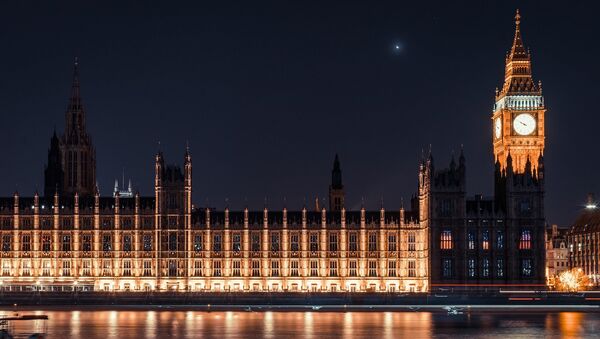Sputnik: What is this ‘hostile environment' policy that is causing identification issues for the Windrush Generation?
Dimitrios Giannoulopoulos: The 'hostile environment' is a network of immigration policies that have been developed over the last few years, initially by the Coalition Government. Theresa May appears to have played a very important role in that.
It brings into play a number of strategies that aim to alienate people that are coming from particular groups — all vulnerable in different ways, minorities, foreigners, young people.
The policy does that through striking different areas. So, you have the employers that have to check the immigration status of people applying for jobs. You have people applying to the NHS system. You have landlords who have to play the role of immigration officer; you have other bodies in higher education as well. So there's a complex web of interconnected policies, all impacting people in their daily lives, in very draconian, very significant ways.
Sputnik: Is there a link between the current issues of immigration and deportation and the recognition of rights for EU citizens in the UK after Brexit?
Dimitrios Giannoulopoulos: These policies have not necessarily been directed at people from the EU, as far as we are aware, we still are in the European Union. People were generally protected. We have to note on the other hand that there has been a significant increase in immigration detention directed at EU migrants. The problem now for EU citizens in particular is that they can see these policies potentially apply to them in the near future. If you have people that have actually grown up here, they were born here. The examples of the Windrush Scandals case, it is people who have lived here for forty, forty-five years. They had the rights to stay, the right to work here, which all has been taken away. You can imagine that people already not entirely certain whether they have the right to stay here are going to be fully accommodated and fully protected. I think this case has really caused a significant shock on the EU citizens group. It's easy to be complacent, to show good faith, and listen to the promises that have been made by the government. On the other hand, when you have been faced with cases like this, where their rights have been taken away, you have very good reasons to fear that it might be you next.
Dimitrios Giannoulopoulos: Outside the concept of the 'hostile environment', you see that Brexit has already had quite a significant impact on the number of people who are migrating to the UK. We see in hospitality, and in other areas, they are already facing the consequences. But I think the linguistic, or the philosophical ramifications are very significant. Both in terms of the people that are targeted and suffer the immediate consequences. But I think most interestingly, potentially very importantly, in relation to these citizens that have become part of the state apparatus, are responsible for the implementation of this mechanism. In order for these measures to take effect, as I said, you need landlords to implement them. You need simple citizens to become part of this mechanism. The internalized operation of the law is a very conservative force. They're part of the mechanism that brings about devastating consequences for fellow citizens. I think we might wish to ask this wider philosophical question, what does this hostile environment policy do to the UK more generally?
The opinions expressed are those of speaker alone and do not necessarily reflect the position of Sputnik News.





